Have you ever seen those hilarious and satirical YouTube videos pop up in your Facebook newsfeed? You know, the ones where there’s a long-haired, redheaded man who pokes fun at spiritual people? Well, the creator of these videos is none other than JP Sears, from the popular YouTube channel, Ultra Spiritual Life (spoiler alert: JP is today’s guest)!
JP Sears is an emotional healing coach and a YouTuber whose channel has garnered over 100 million views. He’s the author of the book, How To Be Ultra Spiritual, as well as an international speaker.
In this episode of Pursuit With Purpose, we’re talking about the issues he sees most often in his coaching clients, and how he himself had to work through an entire lifetime of people-pleasing and disregarding his own needs. As you’ll notice from this interview, JP is just so full of l-o-v-e, and truly one of the kindest and most open-hearted people I’ve had the opportunity to speak with. His insights for us today have the power to completely change how you see yourself.
Ready to hear the full convo? Let’s get into it. 🙂
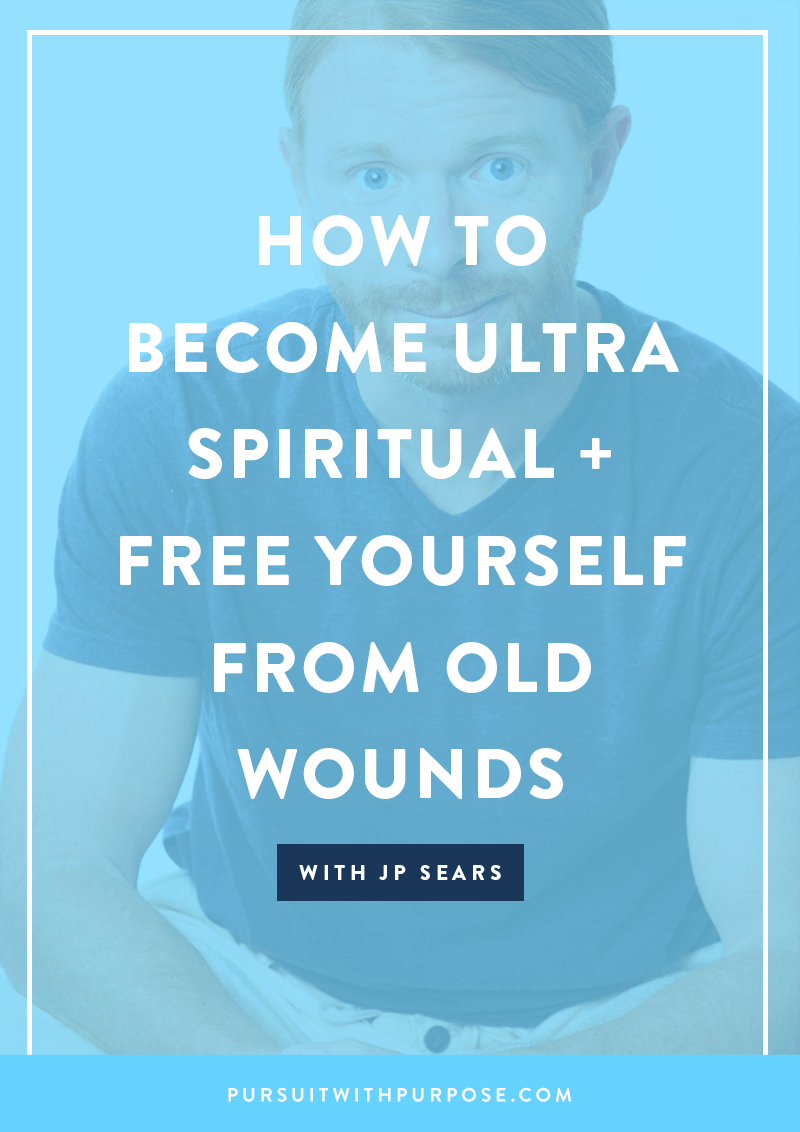
Check out the episode below:
In this episode, you’ll hear about things like…
- Where to start when it comes to feeling our emotions, and what can happen when you avoid them.
- JP’s distinct formula for making people laugh (a lot!)
- How people pleasing and needing to be liked affected JP’s life (and probably yours, too), and how he recovered.
- How JP analyzed his dreams to dramatically shift his life and identify recurring patterns.
- The dark and light sides to JP’s childhood – and how his experiences have shaped who he is to this day.
- What our “shadows” really are (and how they relate to our beliefs and emotions).
Some Questions I ask JP…
1. You create hilarious YouTube videos that make fun of different spiritual trends. Why did you choose humor as a way to spread your message?
2. What’s the advantage of seeing an emotional healing coach vs. a traditional therapist?
3. What do you think are some of the biggest issues keeping people from true healing or from activating their full potential in life?
Links from the interview:
- Awaken With JP (JP’s Website)
- JP on YouTube
- JP on Facebook
- JP on Instagram
- JP on Twitter
What do you think?
I’d love to hear your thoughts on this episode. Do you ever find yourself “people pleasing”? What is that experience like for you?
Here’s how to subscribe + review
Want to be the first to know when new episodes are released? Click here to subscribe in iTunes!
Also, podcast reviews are pretty darn important to iTunes and the more reviews we receive, the more likely we’ll be able to get this podcast and message in front of more people (something about iTunes algorithms?). I’d be extremely grateful if you left a review right here letting me know your favorite part of this episode.
#PursuitWithPurpose
Loving the podcast? I encourage you to use the hashtag #PursuitWithPurpose to show our PWP tribe how you live your purpose everyday. Plus, you’ll get to sift through the hashtag to find other business owners who care about community and connectedness over competition and comparison. And I’ll be reposting some of my favorite images and stories, too. 🙂
Thank you for listening!
Transcript
Read the Interview Transcription HereNow if you’re unfamiliar with JP Sears, that he is an emotional healing coach, a YouTuber, author of the book, “How to Be Ultra Spiritual”, as well as an international speaker. His YouTube channel has garnered over 100 million views. Today, we’re talking about spirituality and the inspiration behind JP’s book and YouTube channel. We’re also talking about JP’s work as an emotional healing coach, the issues that he sees most often with his clients, and how JP worked through a lifetime of people pleasing and disregarding his own needs for other people. Now JP is insightful, funny and absolutely full of love. Let’s get into the interview.
Melyssa Griffin: Hey, JP. Welcome to the show.
JP Sears: Hey, Melyssa. I appreciate you having me on the show.
Melyssa Griffin: Yeah, excited to chat with you. So before we dive into all of the amazing things you’ve been doing with your book and your hilarious YouTube channel and the other things that you do to help people, I’d love to learn a little bit about who you are, who you were growing up, and really where you came from. So I’m curious, where did you grow up? What was your life like in those early years and how did that shape the path that you’ve taken now?
JP Sears: Yes. I grew up in Ohio. It was pretty much like out in the country, Ohio. My closest friend lived probably two miles away. So it was—you had me, myself, my mom and dad and sis. Me and myself, like those are two people.
Melyssa Griffin: Sometimes they are.
JP Sears: So my family: my sister, my mom and dad—growing up on a big plot of land. I think my childhood, it was different things. It was a collage of different experiences; some from the shadow side, some from the light side. I think my experience is—actually that’s true of all of us, the question is do we have the awareness to see both the light side and the shadow side, or we’re stuck at just one polarity. I think that said something of my—I would call them the light parts, easy parts of childhood. I was good at sports, good at is making people laugh. I loved hanging out with my friends. Then on the shadow side, there was always challenges in the household; parents going through separations. They did that a bunch of times and ended up not getting divorced. My dad would move out for a few months at a time. At the time, I didn’t think anything of it. I was like okay, pretend like nothing’s wrong. I even convinced myself, but looking back, I can follow the breadcrumb trail and see how those experiences had a lot of impact on me. I think accordingly, one of the shadow dimensions of my childhood that created a dimension of levity in my life today, is humor is one of the ways I dealt with pain. It was like a way of dealing with pain by not dealing with pain. If I felt the pain of insignificance inside from today’s perspective, I can look back, see what was happening. At the time, I didn’t know. If I had the pain of insignificance inside, then I would just go and try to make someone laugh so that I could feel significant for a few minutes, because I don’t know, I feel like it really mattered to them because they’re laughing and smiling because of me. So I felt significant instead of insignificant. So I would do all these micro escapisms of my inner pain; making someone laugh and the relief that laughter would give me, it would last maybe a few minutes, maybe like 11 minutes on a good day. Then, got make someone else laugh soon. That helped me develop humor that helped me—learning to be so needy. I needed to make people laugh. It helped me develop perspective to see underneath what’s going on. Because like now, from today’s language, I can see like okay, to make someone laugh, you have to dip under the surface and then bring something to the surface and show them what’s there, that they’re just not really aware of. That’s basically the formula for making people laugh. So I got, I don’t know, probably tens of thousands of repetitions of that in my childhood. The other cool thing is I guess also developing perception beyond just the illusion of how things appear to be. Yeah, so I think in childhood, humor was definitely a tool I used to escape pain. And then I think in adulthood, hopefully there’s been a paradoxical shift where now humor is used as a way of healing and processing pain. Essentially, going towards pain and embracing that so it can heal, rather than just the child conscious sense of trying to escape it.
Melyssa Griffin: Yeah. Right. That makes a lot of sense. Do you feel like– because you have a hilarious YouTube channel and you also make very serious videos too. Do you feel like the funny videos are, even now, kind of a way for you to escape the pain or kind of hide behind the humor in a way, or do you think that they’re very just pure and designed to make people laugh and kind of uncover their own stuff?
JP Sears: Yeah, great question. Probably yes to all of that. I definitely have intentionality with the videos, as them being ways to help people and myself in very certain shadows, the things that we need resolved in our psyches or our hearts. It’s interesting, when I look back over the past three years that I’ve been making comedy videos, there’s been a bit of a hero’s journey, where in the beginning of making comedy videos, probably for at least the first two years of it, in a sense while there was like finding pain and embracing it, which also means embracing one’s self, there was also escapism. I would just be in character – headband and flower in the hair. So that was a way of escaping a part of myself, to essentially connect to another part of myself. Once that connection was built—it was just earlier this year, January 2017, in San Francisco to be exact, where I was—definitely had the realization of yeah, I’m using this character to escape. It used to be source of freedom and now it’s too small. So the idea of just being in character when I’m on video or when I’m on stage doing a live performance, that started to really feel not good to me. So I changed. Hopefully, now the humor in the character is even more oriented towards me finding me and hopefully helping other people do the same for themselves. So I used to like have to be the character. I look at that as a tool in my toolbox, like I’ll pull it out and be in the character and the video effects, seemingly what will fit the video best. Otherwise, I’ll just be me. To me, the humor becomes more multi-dimensional. I’m not just the character, but also I think just how you enjoy it more, figure out how to spread my wings more.
Melyssa Griffin: Right. It seems like be more of yourself with everything that you’re doing, rather than kind of like pigeonholing yourself into this one persona. Now you get to be your whole self.
JP Sears: I think if we didn’t know any better, we’d start to think that one of the purposes of us being here is to actually be our self.
Melyssa Griffin: Yeah, I like that. Did you ever struggle with that growing up or at any other time in your life? Just the struggle of being yourself?
JP Sears: Yeah. Yeah, all the time. Still to this day. I think present day, what I have working for me now compared to as a child or a teenager, is I’m more willing to struggle. I’m more willing to fuel the fires and the fears of being myself, rather than like say as a teenager, let me—it was just all about let me be who I think I need to be in order to fit in, in order to get people’s approval. That is the opposite of being true to myself. Truly that’s—the whole psychological trajectory is geared around avoiding pain, avoiding the pain of rejection. You can’t reject me if I don’t show you the real me. There’s always been this deep seated belief that I had. I think anybody who I’ve talked to has had their version* of it, the belief that says if you knew who I really was, you couldn’t accept me and you couldn’t really love me. So yeah, I consider myself a recovering people pleaser. And man that is, it’s so dysfunctional. It’s a dysfunction that’s very rewarding. That’s what makes it so addictive. Whereas, take something like alcoholism—and I don’t want to trivialize it, yet it’s pretty quick and easy for a person to see when your life is in shambles. With alcoholism, it’s like you’re drunk all the time. You can’t function in a job as well as you used to. With people pleasing, by the very definition of it, you’re just rewarded all the time. People, you can get more of their approval, not necessarily love, because I think love and approval are very different. You get their approval. They applaud you. They don’t create an intervention like, JP, you’re so charming that we need to take you to rehab.” The cost for me being a people pleaser, saying yes to whatever someone needed of me, saying yes to who they needed me to be, the big cost was betrayal of myself. If I’m being who I think other people want me to be or need me to be, it means I’m not being myself. I think that self-betrayal is shockingly painful. It’s like a frog boiling in water. It doesn’t just hitch on the side of the face one day and you realize that it’s there. It’s a very slow, progressive, very painful boil that I didn’t really know I was in, until I was in there.
Melyssa Griffin: Yeah. What made you—what was like the shift, where you realized that you’re a people pleaser and you wanted to change something about it? Because like you said, it seems like it could be so easy to get wrapped up in that and feel like everyone loves you. So why would you want to change? What was that shift for you?
JP Sears: Yeah, I think the biggest part* of this shift started when I began doing dream work with a dream therapist. So I mean like my dreams I have at night were like what’s the lesson* about him. There just kept being reoccurring themes of how I’m trying to be everything for everybody. In the dreams, and my delusional opinion about dreams, the dreams show us the truth of ourselves. It’s like we’re literally asleep when we have them so our ego is not onboard to filter and distortlike our ego is asleep. Whereas, in waking life, we can delude the truth of our self in order to see what we want to see rather than what we need to see. I started looking at my dreams with a professional. It was so helpful to start to notice the reoccurring patterns of like yeah, I give myself away. It causes a lot of inner angst that I didn’t really know to look at, but it’s certainly very obvious in the dreams. And then also starting to consider what it cost me. I mean giving yourself away for a day or whatever, you don’t really notice that much, but after about 30 years, 33 years, okay well like now, the wells run pretty dry. So I think part of what also got my attention and the dreams helped me get my attention to this, was I would call it emptiness inside. I give myself because I’m filling this container up with everything I think I should be. So yeah, I think for me, the dreams helped me realize, like yeah one, that I feel empty. I feel unfulfilled and it’s my damn fault. It’s scary to say yes to being me, and now it’s becoming scarier to always say yes to being who I’m not.
Melyssa Griffin: That’s a great point.
JP Sears: Yeah. And it’s an ongoing challenge of mine, but I think the difference between now and four years ago, is I know leave myself to be challenged rather than avoiding the challenge.
Melyssa Griffin: Right. I like that a lot. It’s almost like you have this awareness that it’s going to be potentially more difficult than just people pleasing with everyone that you know, but you know that the return is going to be so much greater that it’s worth that difficulty. I like that a lot.
JP Sears: Yeah. I think it’s also been helpful for me, and I would dare say potentially helpful for other weirdos who deal with their version of this, start to have some life experiences where I’ve seen when I bet on me, stuff works out better. When I say no to an opportunity, for instance, that makes a lot of logical sense to say yes to—maybe there’s money involved, maybe these people want me to do it, but if it doesn’t feel right to me—when I have the experiences of saying no, like wow, that’s scary but I said no. Whether it’s a day later, a month later, six months later, because I said no to that, I can see like this awesome-er thing that lights me up…this is here now. If I said yes to the people pleasing and no to myself, then this new, amazing thing wouldn’t have had space. So some examples of—call it the reward of betting on myself, that’s definitely what training my inner dog to like okay, let me lean more in the direction of myself. it’s just a different life rewards keep me to sniff towards myself, rather than just always other people.
Melyssa Griffin: Yeah. I like that that analogy, that visual. So you have a YouTube series called Ultra Spiritual and a book called “How to Be Ultra Spiritual”. How do you define spirituality? Do you feel like you are a spiritual person?
JP Sears: Cool. I love the question. My delusional definition of spirituality is a sense of connection to something beyond what we interpret to be ourselves. So long story short, it’s the connection to what’s beyond us, period. The footnote to that is, is truly a sense of connection, like a feeling sense. Not a knowledgeable sense, not some religious scholar or spiritual scholar. To me, what we have in our left brain to interpret potential connection to be, that doesn’t mean you’re connected spiritually. It means you have a head full of opinions. What may or may not be there, which to me is true spirituality, is having a feeling of being connected to something beyond us. I’m guessing like the newborn—well, before the newborn is a newborn, when it’s a fetus inside the mother, it probably doesn’t have the left brain development to say, “Oh yeah, okay I’m the baby. This is the womb. That’s my mother, who I am inside of.” But the baby would have a sense of being connected to something beyond itself, not an interpretation or a rationalization, but a sense of it. To me, that’s what real spirituality is. Again, that’s my delusional opinion. From my point of view, do I consider myself spiritual? In a word, yeah. My spiritual life is very important to me. My dream work is all about connecting, getting out of my own way so I can connect to what wants to live through me. On my good days, I feel a sense of like life is supporting me. Again, like I feel that tangibly. When I might be overworking myself, over pressurizing myself, falling into the habit of just thinking I need to be productive at the expense of everything else, then I’ll start to feel disconnected. That doesn’t feel good to me.
Melyssa Griffin: Right. Right.
JP Sears: I think some of the wise, Zen people have said all suffering comes from a sense of disconnection, whereas, contentment comes from a sense of connection.
Melyssa Griffin: I completely agree, where I feel like—I like the way that you phrased it, how it’s this sense of connection to something beyond us. I agree, where I feel like connection in general, whether it’s connection to a source or something beyond us or connection to other people in our relationships, it just seems like the most important thing that brings true happiness. Like you said, contentment in life is just to feel that connectedness with everything around us. I love that. I love that you pointed that out.
JP Sears: Yeah. Well thank you for—I’d like to point out that you’re pointing out that I pointed it out. I think connection is something that all people deeply crave. Some of us are figuring out how to say yes to it and some of us are figuring out how to ask for it. And then others, we’re very constipated on our ability to express and get our need for connection that—for example, I think there’s a reason why there’s seven billion people on this planet. I think we need each other. I think we need to be connected to each other. It’s like I can look out at an apple tree and you see that apple. If you pretend that apple is a person for a second, we realize for that apple to grow, for it to grow and step into its life, expand, become like a real apple, that apple has to be connected. It then has to be connected to the branch. That branch has to be connected to the tree trunk. That tree trunk has to be connected to the earth. The earth has to be connected to our solar system. It needs the sunshine. The solar system has to be connected to our galaxy. So I think we are that apple. We need connection. Even though we don’t necessarily see our stem that connects us to the branch that’s greater than us, then connects us maybe to something even bigger than us. Even though we don’t see our stem, I think it’s there. When we try to live our life just based on the doctrine of control, we start to believe if I can’t see, smell, hear or taste something or measure something, then it’s definitely not there. It’s like well, what if you just don’t know how to measure it? What if it’s not possible to be seen? It doesn’t necessarily mean it’s not there. It just means we don’t know how to see it. So it’s a mystery. We like to get scared of mysteries and then say no to the mysteries and step out of them. But I think if we can say yes to the mystery and yes, I am an apple that has a stem, I don’t know where—I can’t see my stem and I can’t see what I’m connected to, but if I let myself be the apple anyway, then we get connected. I think that really works for us just the same way it works for the apple. To have its life supported by its connection – I think we really get supported and our lives are enhanced when we allow connection.
Melyssa Griffin: Right. It almost goes back to that idea of people pleasing that you were talking about too, where you might feel kind of connected to the people around you, but you are not truly connected so it just doesn’t have that pure sense to it that a real relationship would.
JP Sears: Yeah. To me, people pleasing, the approval—when we use approval as the currency of connection, it’s a very cheap connection, very low dollar exchange rate. Acceptance for me is the deep connection. It’s like an apple tree. If you take an apple from the apple tree and just rest it against the tree trunk, like okay it’s a superficial connection, literally superficial; standing the apple on the bark of the tree. If the stem is there, it’s not approval based, it’s accepted space. That stem allows like an internal connection from the apple to the apple tree. I think at least for me, when I go after the shallow currency of approval, what that causes is a disconnection in me. I have to disconnect me from me. So I cut my own stem. It’s like oh someone needs me to be a banana, okay. Let me cut my stem here, create my disconnection, and I’ll go lean on a banana tree. I don’t know if bananas grow on trees, they probably do…
Melyssa Griffin: I was actually just thinking about it too when you said that.
JP Sears: Then I’m the apple leaning against the banana tree, and it’s a shallow connection. Yeah, it’s enough of a connection that I think it’s all I need for five minutes, but after a while, if I don’t figure out how to say yes to my stem connection to the apple tree, then it doesn’t matter how many banana trees I lean on. It doesn’t matter how many banana trees I buy. It doesn’t matter how many pineapple trees I buy. It doesn’t matter how many Ferraris I buy, how many big houses I buy to lean on. I need a genuine deep connection based on acceptance in order to get the nourishment inside that I need. That’s the apple that I am.
Melyssa Griffin: Yes. What kind of apple would you be if you were an apple by the way?
JP Sears: I have to go with a red apple. I’m staying loyal to my red hair.
Melyssa Griffin: Very fitting.
JP Sears: Yeah. I don’t think I’m apple knowledgeable enough to know the varieties of red apples there are. So I’m just going with red apple.
Melyssa Griffin: Simple man. I like it. Nice. So you wrote—or you published I should say, a book earlier this year called “How to Be Ultra Spiritual”. What did you want to get across in this book and why did you write it?
JP Sears: Good question. So a few things, one of the things I wanted to accomplish with the book was creative* satisfaction. It was something that felt like a yes. It excited me. It was a venture I’ve never taken before, writing a book. The idea, the book, it’s a comedy book. It’s my satirical look at the spiritual New Age culture. So I wanted to have that experience of creating this book, written in character. I found it was a very different experience than like say writing 5-minute line YouTube videos. Certainly, some of the deeper messages that the book is intended to convey while hopefully entertaining you and giving you a good time and some laughs, the deeper messages of helping us realize where we’re looking for happiness. Are we looking for happiness where it is or where it’s not? I also want the book to be something that helps us realize, the path we take to find ourselves will eventually become a path we lose ourselves on if we don’t grow, if we don’t let go of what’s worked for us in favor of embracing what will work for us better now. I think lastly, I hope the book is a way that empowers people to look at their shadow, look at their unresolved stuff, look at their egotistical nature with compassion so we can do something about it. Not look at their shadow with shame, but look at their shadow with compassion so that it doesn’t have to control us as much. If someone can accomplish even half of that, then I’m a happy camper.
Melyssa Griffin: Yeah. It sounds very deep. I mean it sounds amazing, layered with humor but a very deep message to it, which that’s awesome. You’ve mentioned shadow or shadow side a few times. Can you explain what you mean by that?
JP Sears: Yeah. I think the term shadow can mean a lot of different things to a lot of different people. Sometimes that same term will mean different things based on how I’m using it. So the primary way or primary meaning that I attach to the term shadow, is the things you don’t know about yourself. It’s just like the metaphor of a shadow, they’re in the dark. We don’t know they’re there. It can be some of our most painful wounding*, some of our most shameful experiences, some of our most shameful beliefs, hurt, emotions. It can be our greatest gifts. It can be really joyful stuff that’s just in our shadow. I think one of the things any of us can ask ourselves is how do I relate to my own shadow. Am I in an indifferent relationship with it, where I pretend that I know everything about myself*? It’s called arrogance. I know things about myself. I know everything about myself, but to me, humbleness says there is more that I don’t know about myself compared to what I do know about myself. That humble mindset in my opinion, is one that says yes to our shadow self. It allows us to even have a relationship with it, let alone a relationship where we lean into the mystery of ourselves so that we can learn. Not only learn intellectually more about who we are, but more so an embodied kind of learning, so we can actually let ourselves be ourselves, so we can encounter old pain that’s unresolved that avoiding will just continue to weaken us. Encountering that pain will now become a strength if we are leaning into the mystery of our shadow self.
My delusional opinion is it’s human nature to avoid mystery and stay rooted in the familiar. When things are familiar, that’s called our comfort zone. When things are mysterious, the unknown. That’s uncomfortable. It provokes our self-preservation response, like we get afraid if we don’t understand because they might kill us. Indeed, they might, but they probably won’t. So I think when we can run from a self-preservation mentality that says no to mystery and yes to redundant familiarity, to a mindset of self-realization not self-preservation that says yes to the mystery of us. It’s like yeah, my shadow, let me look at that. Let me pretend I don’t know everything about myself. Let me realize the things I do know about myself are probably just illusions as well. So that means we can now become the curious, humble student of our own life angled towards self-realization, rather than just self-preservation. I get excited about the term shadow self and shadow work. A lot of times, yeah it is the swampy stuff about ourselves or unresolved wounding. And again, our gifts are there as well.
Melyssa Griffin: I love the way you describe that. I love too, how you talked about the self-preservation and how it almost goes back to our primitive DNA, where we think in our head subconsciously that leaning to the shadow side is going to kill us, like this is something we can’t do because it’s dangerous. Actually thinking about it logically, it’s like this isn’t going to kill us. It actually might make us more of who we are. When we realize it that way, it seems so much easier too, to actually do that and become that person. So I like the way you put that a lot. Yeah, so this might be a good segue into talking about your career as an emotional healing coach, because I feel like what a lot of people don’t realize about you when they watch your comedy videos on YouTube or Facebook, is that you are actually a coach. You help people deal with issues and internal things that might have been bothering them their whole life. So I’d love to first learn what is an emotional healing coach and how do you help people with that profession.
JP Sears: Yeah. So the meaning of emotional healing coach for me, is I help people help themselves connect their feelings and their inner wisdom. Yeah, if I was giving a short* definition, that’s what it would be. If they expand that a little bit, it means asking people the right questions that they can make the inner connections that they need. It means encouraging people and guiding people into their shadow, honestly their pain rather than avoiding it. It means also giving exercises and guidance for helping deal with that rather than just like “oh yeah, there is pain now”. Good luck. There are actual techniques and practices to help people help themselves process it. Much like a mountain guide, an emotional healing coach from my point of view, isn’t going to climb the mountain for you because the mountain is inside of you. They can’t. The mountain guide guides you along while you climb your mountain. It can be tough and treacherous at times. Thirteen years before I started making comedy videos on YouTube, I had been doing emotional healing client coaching – busy one-on-one client practice of running retreats and workshops all over the world, as well on emotional healing and personal empowerment themes*. And then yeah, I started making comedy videos as an additional way for me to share my perspective just through the language of humor. And then the past three years, I’ve been making comedy videos as well.
Things on the emotional healing coaching side have shifted for me. Earlier this year, I gave up my one on one client practice. It was just the season my heart was called to. There’s a lot of other meaningful, purposeful projects that were asking to be attended to in life. Over the previous three years, a bunch of opportunities were opening up through the doorway of my videos. I’d go from five days a week to four days working with clients, and then three days a week, then two days a week. And then finally, zero days a week. Now how the coaching is taking form in the world, recently I launched a private membership community which I’m just calling Awaken with JP Premium AF. That community is helping people live a more meaningful life, heal and grow through playfulness and purposefulness. So it’s me bringing the 16 years of meaningful heart guidance from my coaching, along with the comedy that I’ve been blessed to have hundreds of millions of people laugh with. So I’m combining those together and essentially doing a big group online coaching program in my membership community.
Melyssa Griffin: That’s so cool. That is very cool. For the people in your community or your past clients that you’ve had, what are some of the issues that you see come up again and again that people come to you with?
JP Sears: Self-sabotage is a big one. Self-sabotage is general. It can mean overeating for one person. It can be someone being smart enough to always know how to screw up their finances. It can be never happy. So self-sabotage covers a lot, but a lot of people resonate with that term because a lot of people do self-sabotage. Relationship issues are also very common, that I’ve worked with and that I coach members dealing with. And then also, I think people resisting change, resisting stepping into their greatness, having an addiction to playing it small because that’s comfortable. So helping people find the courage to be scared rather than being so scared that they’re too scared to be scared. In other words, helping people step off the cliff rather than sitting on the cliff of complacency, no change, everything stays the same. I hate my life here, it’s really empty, but boy, does it feel familiar. So, helping people find the inner resources to step off the cliff.
Melyssa Griffin: And you said that you, when you coach people and work with them, that you use questioning to get them to open up. What are some of the questions or kinds of patterns that you—I guess I shouldn’t say patterns. What are some of the questions that you use to get people to that place?
JP Sears: A lot of the questions are just sort of…I’ll sound artsy fartsy here. A lot of them intuitively arise in the moment based on the connection with the person. The questions typically, if there was a pattern to the questions, and I think there is, the questions are pattern* interrupt. It’s like you look at the way someone’s been thinking and feeling that’s not working for them, or else they wouldn’t be out to make a change. We’ve got to ask questions that oppose that direction rather than questions that are enslaved in the direction of emptiness. So the questions can be like how does it serve you or what’s the benefit of never having any money? What’s the benefit of finding relationships that then leave you with a broken heart? What’s the benefit of being with someone who discounts you? I’m always with a narcissist. What’s your part in that? How do you benefit from being with a narcissist? So I think the questions will typically have an angulation of radical self-empowerment. Not endorsing victimization, not endorsing the idea that other people have power over you, but the questions become a catalyst for people connecting to their own power. Probably the most common question is: how does part of you benefit____(what you hate most about your life)? If it’s a repetitive pattern, you’re creating it. Part of you will hate it, but there’s another part of you comforted by it or else you wouldn’t keep creating that.
Melyssa Griffin: Interesting. Is that usually the benefit that you uncover, is that there’s some part of it that you feel comfortable with so you keep repeating it?
JP Sears: Yeah. I think in a general term, yes, there’s always the benefit of comfort. We find a lot of comfort in discomfort as long as it is a familiar disconcert that will give rise to—yeah, this is comfortable for a part of me. Yeah, part of me on the surface consciousness will hate this, resent it, but another part of me is really attached to it. And then underneath that level of benefit of the general comfort, oftentimes during specific childhood experiences, there might have been acute trauma of wounding or more just like a lifestyle, this is how it is, then the pattern and current life, the comfort of the dysfunction is just a replication of the original stone that was cast into the pond. It might have been four years old watching dad leave and he left the family and never came home. So that can be a familiar experience that creates the comfort of I feel comfortable when I get into relationships and then essentially teach the guy to leave me. There could be multiple layers. I find a lot, a lot of the benefit tracks down to unresolved childhood wounding. Essentially, the benefit of perpetuating that, is we don’t have to go into the core of the wound if we keep replicating it out here, because it keeps the problem and the pain out here. The real core, man, that’s inside of us. That takes a lot of courage and sometimes a lot of decades to be able to sink into and address, rather than continue avoiding by creating the same looking pattern of pain out here.
Melyssa Griffin: Yeah. What do we do when we have that awareness of this is my thing where I see where this problem stems from? What do we then do to heal it and to move past that thing that we’ve been creating in our lives?
JP Sears: Yeah, I think the cure all—and this is not like “this is so easy, we should all just do this”. This will sound easy, but it’s not. It’s a journey. To me, the cure all for making meaningful change and not be limited by our wounds, not be limited by our small thinking and small beliefs, is feeling our feelings. I think the avoidance of feeling our feelings causes a lot of pain. Ironically, I think feeling our feelings never hurt anybody. I think avoiding our feelings is what hurts us. Yeah, it can be uncomfortable to feel our feelings, but the more we avoid them, the more we create a lot of chaos outside in our lives and certainly more internal chaos. So I think we all need to forgive ourselves, because as children and then teenagers, then young adults, sometimes middle age adults, we didn’t know how to feel our feelings. Nobody ever takes vulnerability 101 in high school. They don’t teach it, and our families typically don’t teach it. It’s something we need to teach ourselves or we just keep suffering the consequences of not knowing how to be vulnerable and feel our feelings. So to me, feelings are—they’re energy inside of us, very much so. If we don’t feel our feelings, then the energy of the emotion gets stuck. It gets constipated just like when we are constipated in our real digestive tract, it starts to rot us. I think that’s what happens when we’re constipated emotionally. The emotion, the energy of that, that should be in motion, energy in motion, it gets stuck. So it starts to stagnate. When we start to feel our feelings, it’s in motion again. That’s why we can feel our feelings. There’s movement. That’s what allows it to digest, just like if food is moving through you. It might not be comfortable. It might have been really spicy Thai food. But if it keeps moving, it’ll move through you. You’ll eventually release it.Feeling our feelings, I think is essential for all of us. I think no matter who we are, we might be Brené Brown talking about vulnerability or we might be the closed off grandfather. Wherever you are on the spectrum, I think we all have room for improvement when it comes to the life changing art of feeling our feelings. When we don’t know how to do that, I think one place to start, especially when we have no clue how to do that, is ask for help. Get a coach who can help us learn how to feel our feelings. I think also the idea of learning to feel body sensations. I teach what I call the FFF Meditation, Feel Your Freaking Feelings meditation. It’s incredibly simple. We just pick one body sensation. Not even talking about emotions, we’re getting just more simple, more primal. Okay, there’s a tingling in my arm or a tightness in my chest or itch on my ear. One body sensation and we focus on that for a minute while breathing. This helping exercise our feeling muscles, because a lot of us, the best we can lift with our feeling muscles are the light pink dumbbells that nobody ever uses in the gym. We need to start with those. So the more we start feeling our feelings, the stronger we get at feeling our feelings. So now we can go from the two pound pink dumbbells to the five pound ones and the ten pound ones. Starting with a simple Feel Your Freaking Feelings meditation, where you’re not trying to move the feeling, not trying to change it. No, this is like for the first time in your life, don’t try to change the feeling. Don’t try to make it go away. Freaking feel it. I think when we can start there, it can start to build a solid platform of feeling our feelings’ strength.
Melyssa Griffin: I like that. Just so that I’m clear, you recommend, let’s say five, ten minutes, you’re sitting here meditating and just kind of seeing what sensations come up in your body and just feeling into them?
JP Sears: Yeah, picking one. It’s not seeing like what are the sensations, it’s just be* singular, because we don’t want to leave one sensation and chase another. Otherwise, we’re just teaching ourselves to deflect. I’m talking about like let’s go vertical with one feeling. Yeah, you’ll have a thousand others. Just focus on one and breathing with it for at least a minute, five minute, ten minutes – that’s even better. To me, doing this consistently is the key. So even if it’s just one minute a day for a month, that is way better than zero minutes.
Melyssa Griffin: Right. I love that. This has been such a joy to talk to you, JP. I have one more question that I like to ask all of my guests, and I’m curious what your answer is. That is: how do you think people can live more meaningful and fulfilled lives? What’s one thing that they can do?
JP Sears: I think they can ask themselves this question on a daily basis: what wants to live through me? It’s not a question that says, what do I want, what do I want to do, but more of a question of surrender: what wants to live through me? I got a note written on my desk and I’ve had it here for probably at least five years. In fact, it’s so old and sun-faded that it’s not super apparent what it says. It says: what wants to live through me? It’s something I like to look at every day as a reminder to say yes to the purpose, say yes to the passion, the excitement that wants to live through me. It’s scary because I don’t necessarily know what it is and where it’s leading, but I find when I can start to say yes to the things that feel exciting, they want to live through me even though I may not have done them before. In fact, if I have done them before, they probably don’t want to live through me. Life just wants to evolve, go and expand, just like a jungle. It just wants to expand itself, but the more I say yes to the things that excite me, the deeper and richer and more fulfilled my life feels. When I’m more in a posture of saying no to what wants to live through me, does my ego get more gratified? Sometimes. Do I feel more in control? Yeah. Do things seem less scary, more familiar? Yeah. But do I also feel emptier inside? Yeah. So what wants to live through me? To me, the wisdom is asking the question even if we have no idea how to answer it. In fact, if we answer it with English, it’s probably not the right answer. It’s a question that opens a door inside of us.
Melyssa Griffin: Amazing. I love it. Where can people find you, JP?
JP Sears: Right now, I’m in my office, Melyssa. I’ve got a window, they can just peek in.
Melyssa Griffin: Put the coordinates in the blog post below.
JP Sears: 39 degrees latitude…On social media, all my handles are AwakenwithJP. I’m super active on YouTube and Facebook and some of the other ones. And then my website is just the same, awakenwithjp.com.
Melyssa Griffin: Amazing. Thank you so much, JP. This has been a wonderful conversation to have with you. I appreciate you.
JP Sears: Oh, you’re welcome, Melyssa. Thank you for having me. I appreciate you too, sister.
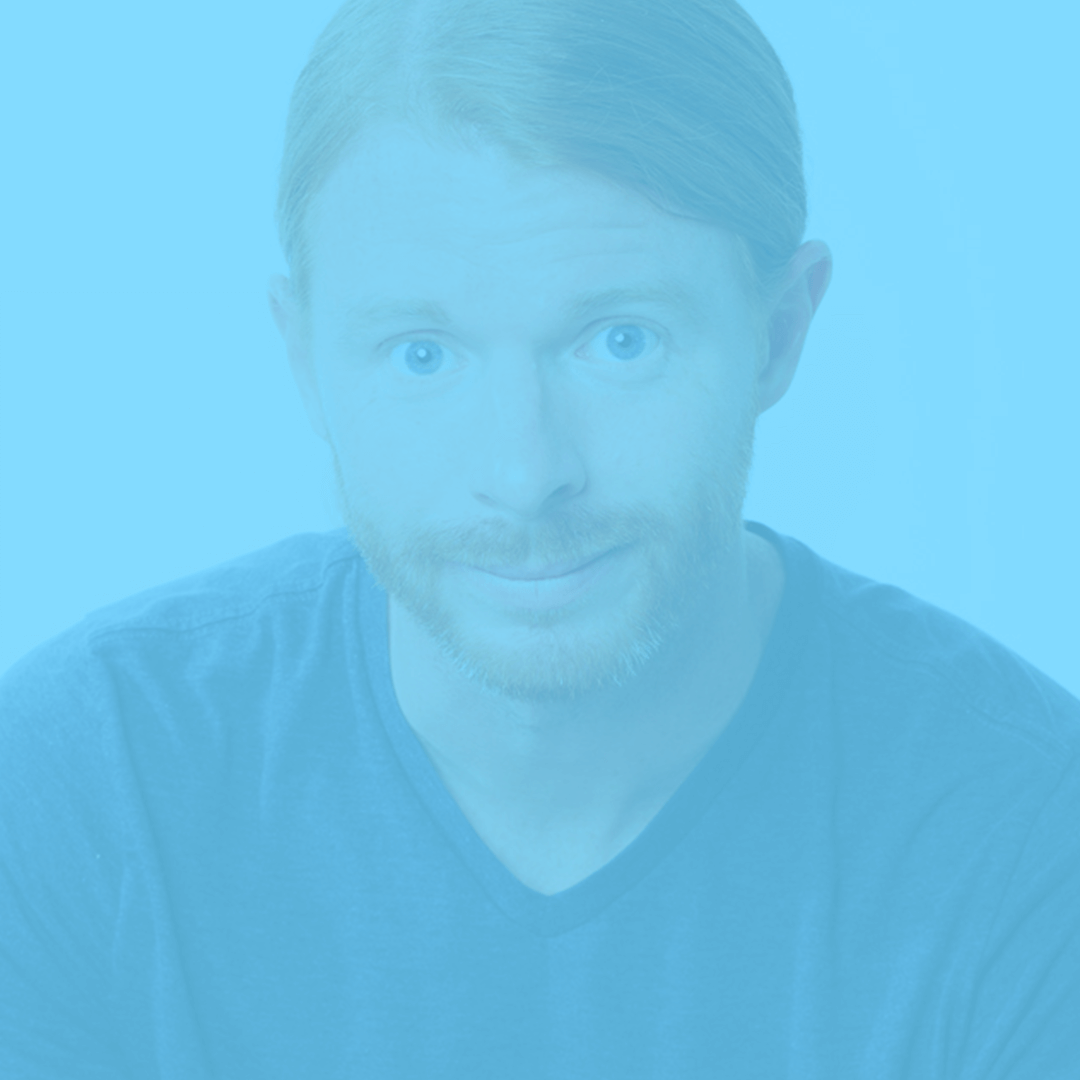
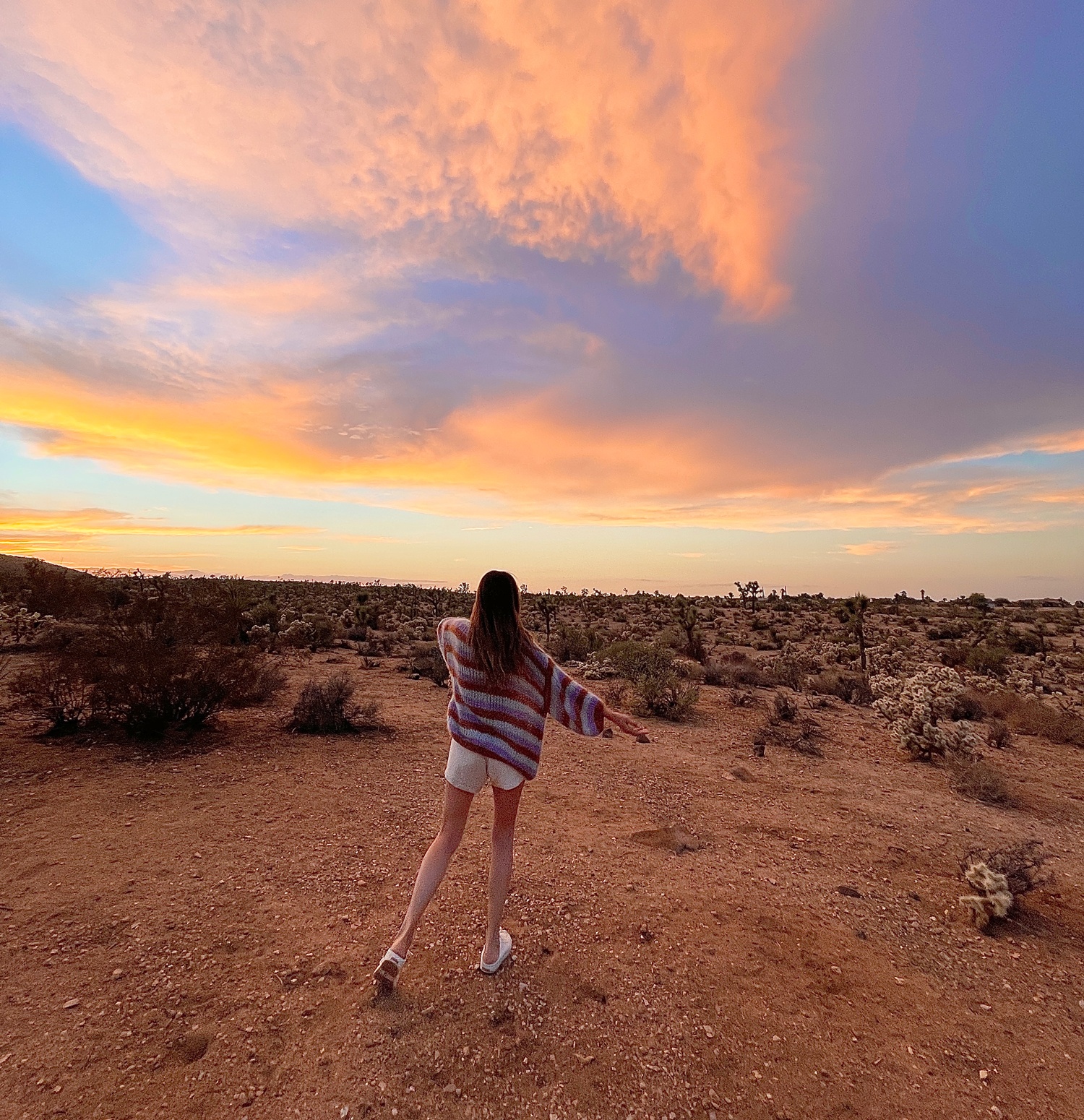


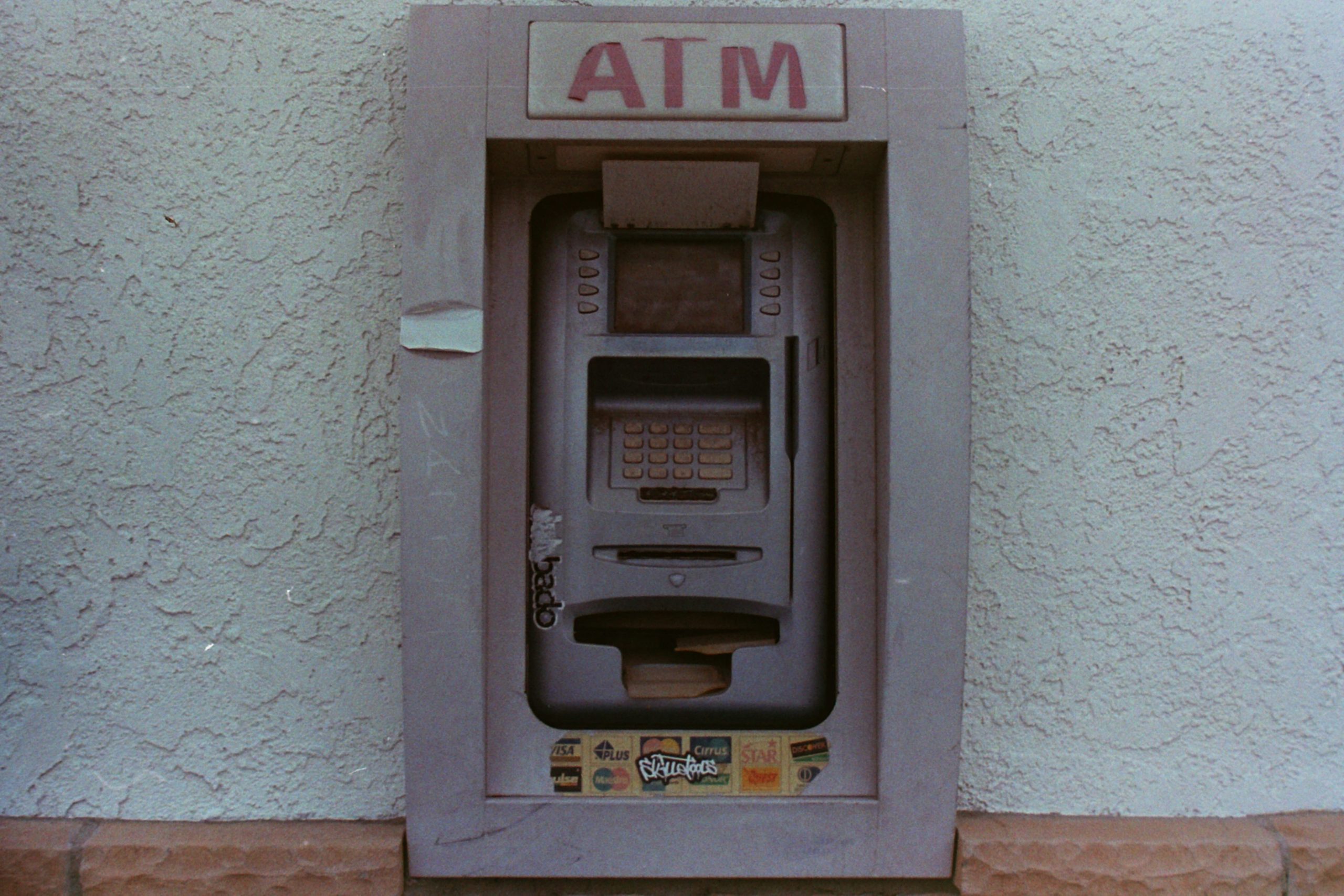
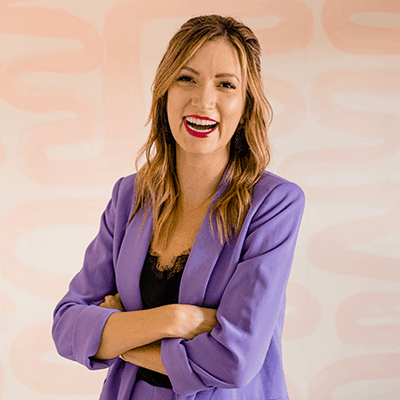
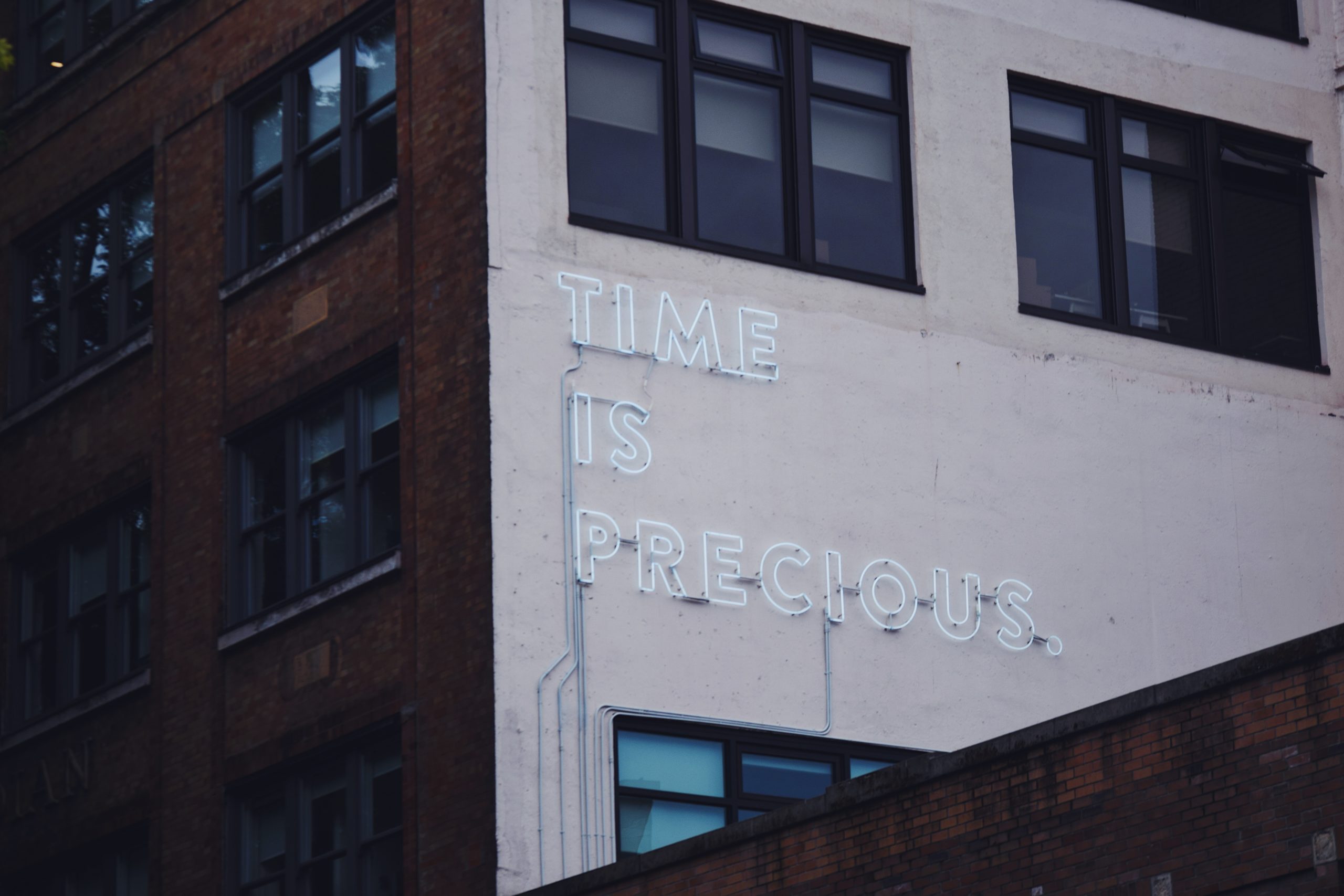

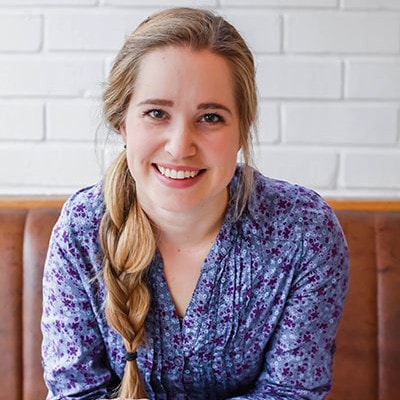




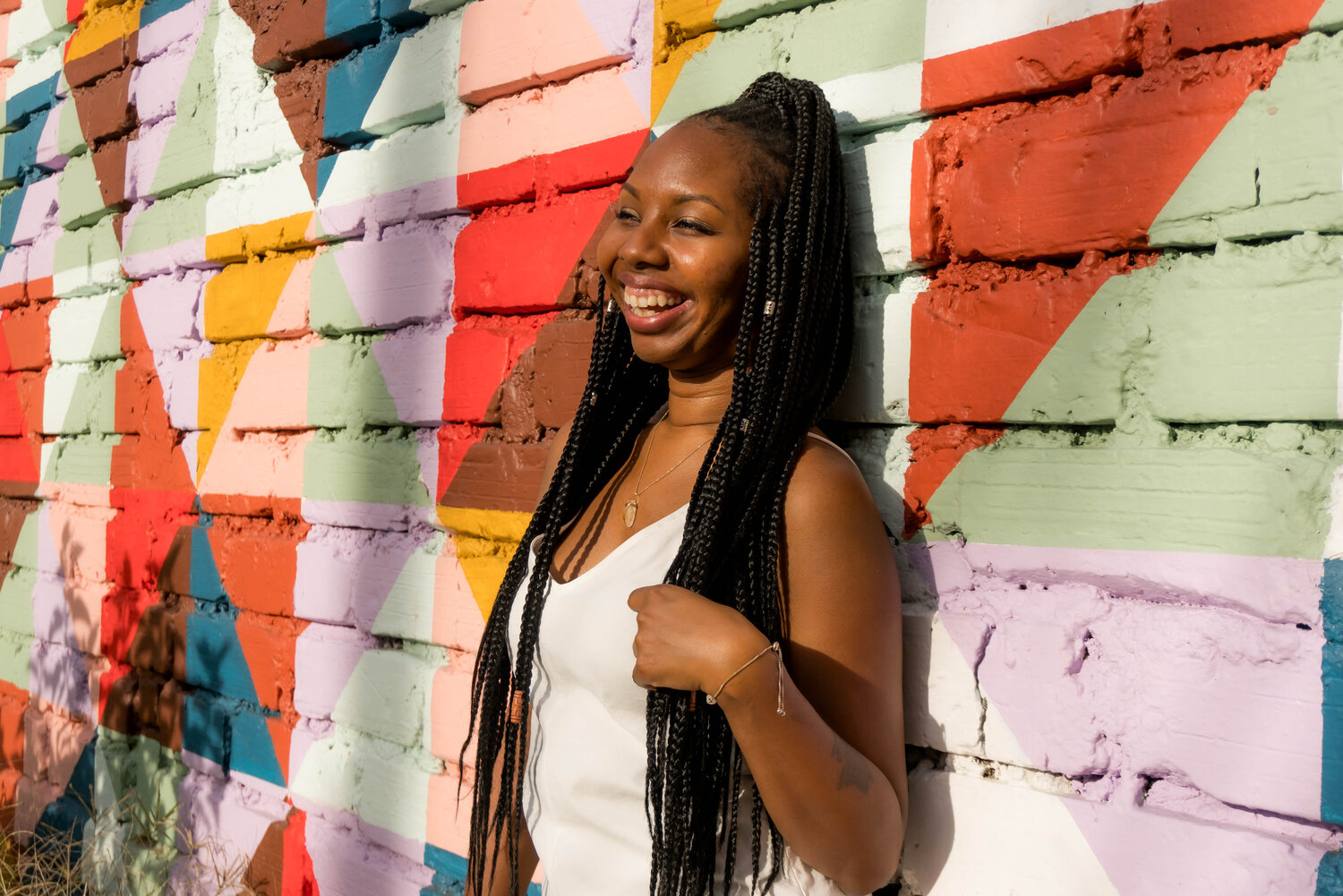

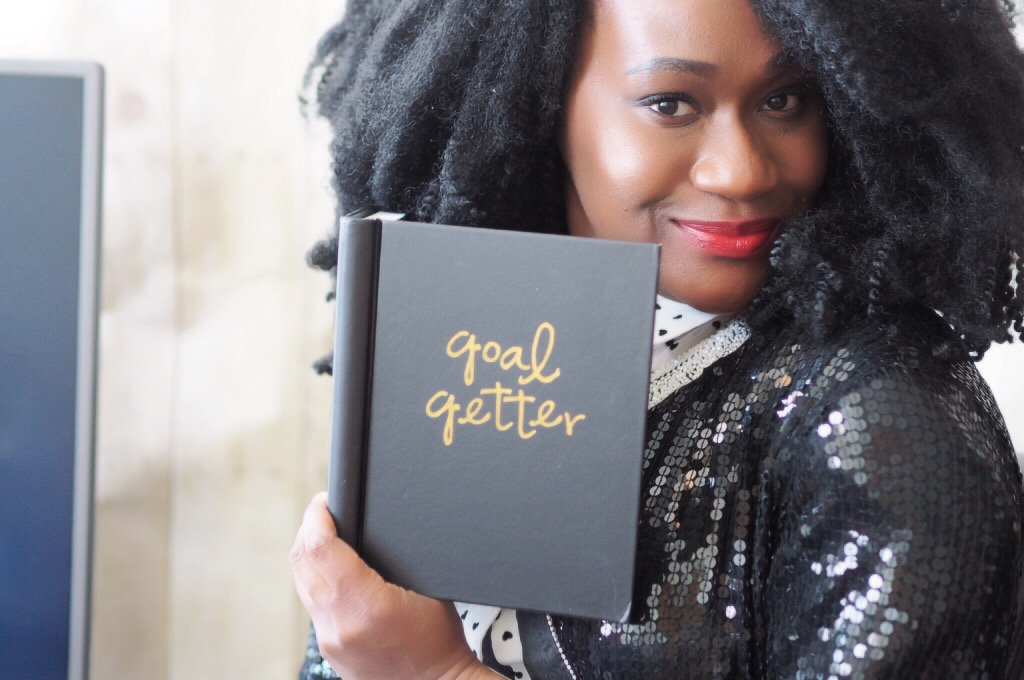
January 27th, 2018 at 3:10 am
博客还真是个好东西!
January 30th, 2018 at 4:27 pm
不错!不错!感觉好极了!
February 4th, 2018 at 12:42 am
不错不错!内容感觉好极了!
February 5th, 2018 at 2:54 pm
新春佳节到。祝好!祝好!
February 7th, 2018 at 12:53 am
鸟儿叫,花儿笑,一年一季春来到!
February 26th, 2018 at 3:34 am
My first visit here!!! Spent sometime and enjoyed very much. Thanks for sharing.
February 27th, 2018 at 9:00 am
Thank you for tuning in, Peter. I appreciate you!